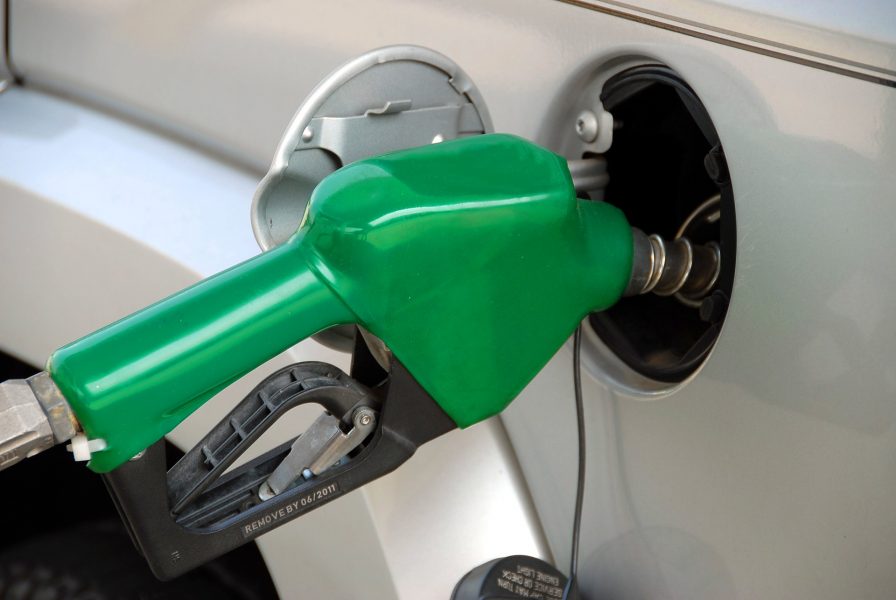
Europe’s tryst with biofuels destroyed 10% of world’s orangutan habitats

As countries race against time to meet their Paris Climate Change Summit targets for reduction of CO2 emissions by 2030, biofuels (made from plant extracts) have emerged as a preferred alternative to fossil fuels like coal and petroleum products.
India too is catching up fast. On June 5, i.e. World Environment Day, Prime Minister Narendra Modi said the target of 20% ethanol blended petrol has been advanced by five years to 2025. Right now sugarcane is the most preferred choice to extract ethanol, but eventually the Indian government aims to extract fuel from maize, rice, soy etc.
But, are biofuels really environment-friendly? What about the biodiversity loss caused due to cutting of forests on thousands of acres of virgin land to grow food crops that produce biofuels? Will over-dependence on biofuels not lead to food crisis in future?
Countries like India, which have just hopped onto the biofuel bandwagon, have lessons to learn from the European Union (EU) which introduced the Renewable Energy Directive (RED) in 2010, setting a 10% renewable energy target for transport by 2020 for each member country. While the objective was good – to reduce dependence on highly polluting fossil fuels – what has actually happened is that high demand for cheap crop-based biodiesel, such as palm and soy oil, subsequently destroyed several acres of forests in Asia and South America. About 10% of the world’s remaining orangutan habitats have vanished because forest land was cleared for biofuel crop production.
It is estimated that the EU’s quest for green fuel has roughly wiped out 4 million hectares of forests. Laura Buffet, energy director at Transport & Environment (T&E) Group, said: “10 years of this ‘green’ fuels law and what have we got to show for it? Rampant deforestation, habitats wiped out and worse emissions than if we had used polluting diesel instead. A policy that was supposed to save the planet is actually trashing it. We cannot afford another decade of this failed policy. We need to break the biofuels monopoly in renewable transport and put electricity at the centre of the RED instead.”
As per one estimate, Europe has burned around 39 million tonnes of palm and soy biodiesel alone in its cars and trucks since 2010, emitting up to three times more CO2 than the fossil diesel it replaced. Buffet said the EU needs to phase-out support to all crop biofuels by 2030 at the latest.
In 2020, roughly 80% of biodiesel production came from rapeseed, palm, soy. At the same time, total demand for biodiesel went up, despite overall demand for fuel shrinking during the pandemic. Some European countries increased their biofuels blending, just like India increased its target of ethanol blending from 10% to 20%, while others kept volumes constant to meet EU compliance targets.
Palm oil reached its highest level, capping a decade of growth that has seen palm oil consumption treble. There was little difference in the use of rapeseed and used cooking oil (UCO), while soy volumes grew 17% and animal fats by 30% compared to 2019.
Laura Buffet added: “We’ve seen a big shift away from palm oil in supermarkets. Nowadays consumers can choose whether they want to buy goods tainted with palm oil. This is not the case for transport. The EU’s transport sector is currently propping up demand for ruinous palm oil without consumers knowing it. We need to phase-out palm oil biofuels immediately.”
The updated REDII, adopted in 2018, plots a path away from palm oil. Palm oil biodiesel use will be frozen at 2019 volume levels and then, from 2023, progressively phased out by 2030 in the EU’s green targets. But nature experts say there is a risk that palm oil will simply be replaced by soy and other vegetable oils, which also drive deforestation.
Laura Buffet concluded: “While palm oil may be the worst, as history has shown, producers will simply move to what is cheap. In reality, unless we take action now palm will be replaced with soy or other virgin oils, moving the problem from one part of the world to another. Crop biofuels are not the solution for Europe’s transport and they never will be.”

